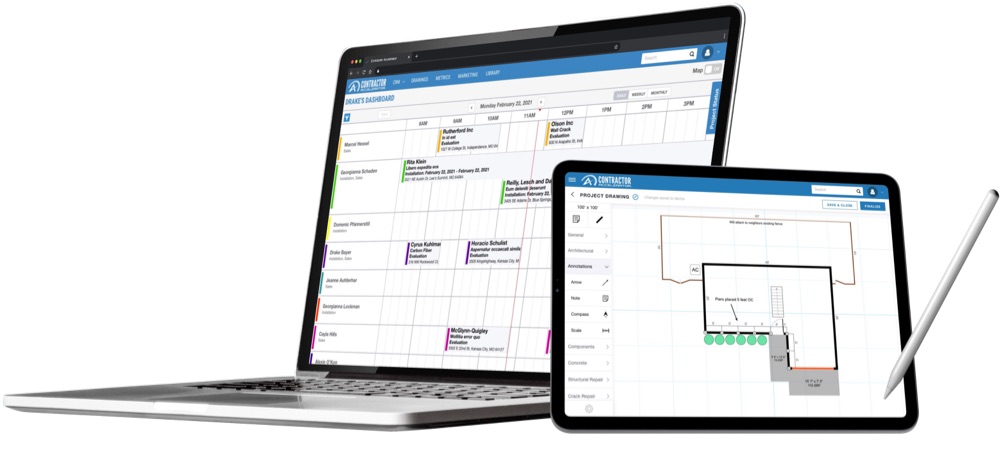Contract Management With Fencing Clients: Best Practices To Follow
Published on Aug 8, 2024
Managing contracts is really important for any fencing business. Good contracts help make sure everyone knows what to expect and protects both you and your clients. This blog will show you the best ways to manage contracts with your fencing clients, both residential and commercial.
Key Elements to Include in Residential Fencing Contracts
When you work with homeowners, it’s important to have clear contracts. Here are the key elements you should include:
Scope of Work
Describe exactly what you will do for the fencing project. This includes the type of fence, the length, and any special features. Make sure it's clear so there are no misunderstandings.
Materials and Specifications
List all the materials you will use. Include the type of wood, metal, or other materials, and any specific brands or quality levels. This helps your clients know what to expect.
Timeline and Deadlines
Include the start and finish dates for the project. This helps your clients plan and ensures you both agree on when the work will be done.
Payment Terms
Explain how and when payments should be made. You can break it down into stages, such as an initial deposit, payments during the project, and a final payment upon completion.
Warranty and Maintenance
Provide information on any warranties for your work and materials. Also, include details about any maintenance services you offer to keep the fence in good shape.
Key Elements to Include in Commercial Fencing Contracts
Commercial projects are often bigger and more complex. Here are some key elements to include in your contracts for these jobs:
Scope of Work
Describe the project in detail, tailored to commercial needs. Include the type of fence, length, and any special requirements the business might have.
Compliance and Regulations
Make sure your contract states that you will follow all local building codes and regulations. This is crucial for commercial projects to avoid legal issues.
Insurance and Liability
Include information about insurance coverage and liability. This protects both you and your client if something goes wrong during the project.
Project Management and Coordination
Explain how you will manage the project, especially if it’s large. This includes how you will coordinate with other contractors and manage the work schedule.
Payment Terms and Invoicing
Detail the payment structures and invoicing details. Commercial projects often have more complex payment terms, so make sure everything is clearly laid out.
Ready to make contract management easier? Try Contractor Accelerator’s solutions for better contract creation, signature collection, and review. Start improving your contract management process today!
Best Practices for Contract Management
Standardize Contracts
Using standardized templates for your contracts has many benefits. It saves you time because you don't have to create a new contract from scratch for every job. It also ensures consistency, so every contract includes all the important elements. This helps reduce mistakes and makes sure you don’t forget anything important.
Clear Communication
Clear and effective communication with your clients is crucial. Make sure your contracts are easy to understand and avoid using confusing legal jargon. Talk with your clients about the contract and answer any questions they might have. This helps build trust and ensures everyone is on the same page.
Regular Reviews and Updates
It's important to review and update your contracts regularly. If there are changes in regulations or if you find better ways to handle certain parts of your business, update your contracts to reflect these changes. This keeps your contracts current and relevant.
Using Contractor Accelerator for Efficient Contract Management
Contract Creation and Templates
Contractor Accelerator can help you create and manage your contract templates easily. You can use pre-made templates or customize them to fit your specific needs. This makes the process faster and ensures all your contracts are consistent and professional.
Signature Management
Getting signatures on contracts can be a hassle. Contractor Accelerator streamlines this process by allowing you to collect digital signatures. This saves time and makes it easier for your clients to sign and return contracts quickly.
Review and Tracking
With Contractor Accelerator, you can monitor the status of your contracts and keep track of reviews. You can see which contracts have been signed and which ones are still pending. This helps you stay organized and ensures nothing falls through the cracks.
Conclusion
Managing contracts effectively is key to running a successful fencing business. By using standardized templates, communicating clearly, and keeping your contracts up-to-date, you can ensure smooth operations and happy clients. Contractor Accelerator can help you streamline contract creation, signature collection, and tracking, making the whole process easier and more efficient.
Ready to improve your contract management process? Explore Contractor Accelerator for efficient solutions to create, manage, and track your contracts. Start making your contract management smoother today!
